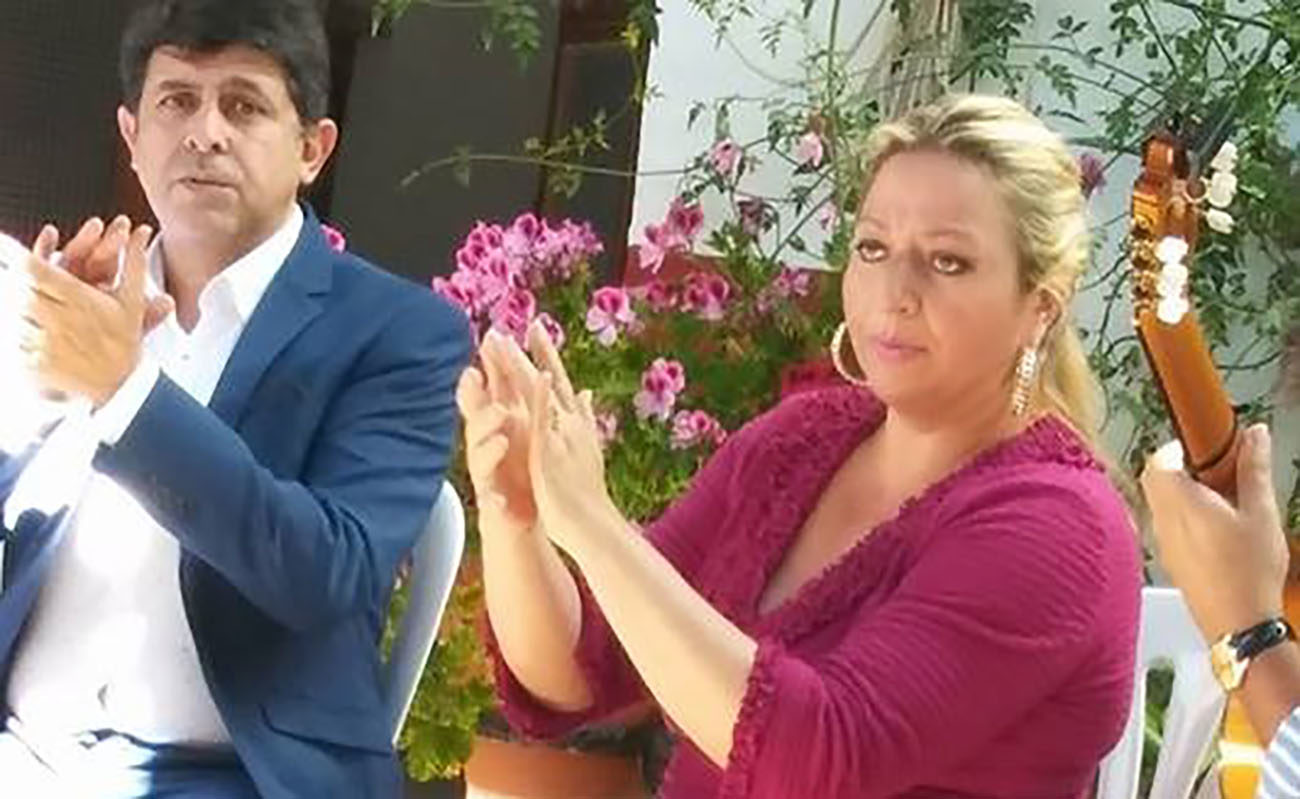Making history in Mairena
It had been a while since I last enjoyed a fiesta flamenca like the one I attended last Saturday in Mairena del Alcor, a stone’s throw from where I live, in an old inn with a large patio (where Manuel Torres reportedly once performed) with good friends from this town such as Diego Manolete, father of the local saetero (singer of saetas) Hornerito. The Fundación Antonio Mairena,

It had been a while since I last enjoyed a fiesta flamenca like the one I attended last Saturday in Mairena del Alcor, a stone’s throw from where I live, in an old inn with a large patio (where Manuel Torres reportedly once performed) with good friends from this town such as Diego Manolete, father of the local saetero (singer of saetas) Hornerito.
The Fundación Antonio Mairena, the Casa del Arte Flamenco and Mairena’s Town Hall organized this event titled Sea usted bien recibío (loosely translated as “You Are Welcome”), a conference about patios and flamenco by José María Morente, who gave a very enjoyable lecture, although it had some incorrect data. After the lecture we had lunch and then, without even time for a siesta, we had a fiesta flamenca which will go down in the annals of this town’s history as something truly extraordinary.
The protagonists of this fiesta or gathering were the cantaora Remedios Reyes, from Chiclana (sister of cantaor Antonio Reyes); Antonio Hermosín, from Alcalá, the best singer of the soleás of that land; Fernando Canela, one of the sons of Canela de San Roque; José El Pañero, from Algeciras, brother of the great Perico El Pañero, also present; El Remache, from Málaga, cantaor and bailaor; and the guitarists José de Pura, from Chiclana, and Rubén Lara, from Málaga.
What these artists offered without a stage or microphones, in a gathering in the purest flamenco style, was truly priceless. It was something which cannot be compared with any other type of flamenco show. It’s the most natural expression of this art, which precisely was born in the tenement’s yards or patios of Cádiz, Seville, Málaga, Granada, Puerto de Santa María or Jerez. As an artistic genre it owed more to the theaters than to these patios, but the basic essence came out of the family parties. The old newspapers of Spain (and even those from outside of our country) are filled with accounts of these parties, not to mention the books written by those romantic travellers who came in the 1800s to some of these cities of Andalusia to enjoy them, and then tell the world about it.
Although this is rarely mentioned, these parties were not improvised, but were often organized by people who did this for a living. In the middle of the 19th century, there was one Péicker who organized flamenco parties for foreigners in Seville’s Triana district. This would even have happened many years before, as was most likely the case with the famous party described by the writer from Málaga Serafín Estébanez Calderón in his book Escenas Andaluzas, which was certainly a party organized to honor Estébanez himself (who at the time, in 1838, was governor of Seville province), with invited artists who would already charge to perform in such parties, such as El Planeta, El Fillo, Curro Pabla, La Perla, Juan de Dios and El Jerezano.
Regarding how the invited artists in this party in Mairena’s old inn sang and danced, it’s something impossible to describe in one article. It was something to behold, and those who didn’t attend just missed it. Incidentally, there was barely anyone from Mairena in attendance, and among the many cantaores of this town, Antonio Ortega Sr. was the only one present, although just as a spectator. The idea was to feature artists from out of town, from the provinces of Málaga and Cádiz, with the exception of Antonio Hermosín who was from Alcalá (Seville province). It was all a great success, and it was such a special day that it will be hard to forget. A day of art, harmony, love and respect. A gathering to be long remembered in Mairena’s history, which was much more than a good party. We’re looking forward to having another one like this very soon.
Translated by P. Young




